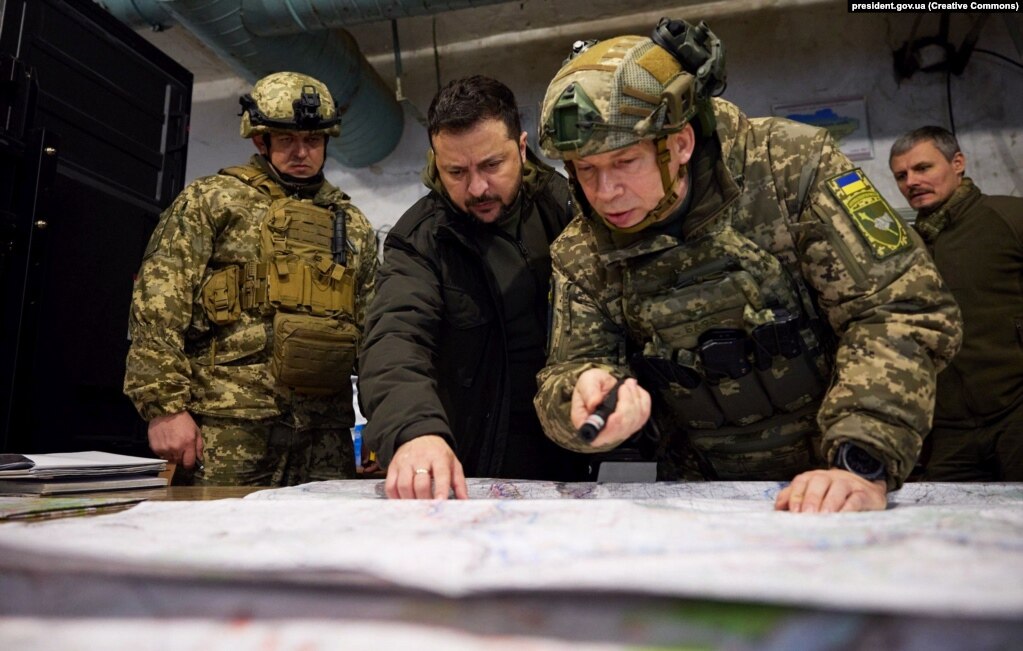When Russia initiated its full-scale invasion of Ukraine, it expected a quick and decisive victory. Contrary to these expectations, Ukraine not only managed to defend its territory but also escalated the conflict by targeting Russian interests globally, thus expanding the battlefield beyond its own borders.
Ukraine’s military strategy has increasingly focused on operations in regions like Africa and the Middle East, with the objective of undermining Russia’s economic power and geopolitical influence. A leaked US intelligence document from early 2023 indicated that Ukrainian forces were considering strikes against Russian military positions in Syria, possibly in partnership with Kurdish operatives. Such actions are aimed at compelling Russia to redirect its military resources to Syria, thereby straining its commitment to the ongoing conflict in Ukraine. Reports suggest that Ukrainian officials were even contemplating training Syrian Democratic Forces to execute drone strikes against Russian targets.
At the forefront of this global campaign is Lieutenant General Kyrylo Budanov, head of Ukraine’s Main Directorate of Intelligence (HUR), which operates separately from the country’s domestic intelligence apparatus. Budanov has overseen a series of successful drone operations against Russian interests, and he has made it clear that Ukraine is committed to countering Russian mercenaries not just in Ukraine but also in Africa. In March 2024, Budanov stated, “We conduct operations aimed at reducing Russian military potential wherever it’s possible. Why should Africa be an exception?”
In Africa, Russia has been leveraging resources to circumvent Western sanctions, particularly in countries like Sudan, where it has established military alliances with the local government. These partnerships have allowed Moscow to exploit valuable resources, specifically gold, which has significantly affected the Sudanese economy. Russia’s involvement escalated following its support for a military coup in Sudan in 2021, enabling it to consolidate control over essential resources while sidelining local democratic initiatives.
In response, Ukraine has intensified its diplomatic and military efforts to counteract Russian influence in Africa. Former Ukrainian Foreign Minister Dmytro Kuleba announced a commitment to “free Africa from Russia’s grip” as part of a broader strategy. By late 2023, Ukrainian special forces had already begun conducting operations against Russian-backed entities in Sudan, which included drone strikes targeting Russian mercenaries. Analysts suggest that Ukraine’s efforts in Africa are likely supported by military coordination with Western allies.
Furthermore, Ukrainian military personnel have been training Sudanese forces in tactics that have proven effective against Russian operations in Ukraine. This multifaceted approach is strategically designed to reduce Moscow’s presence in Africa while simultaneously demonstrating its vulnerabilities on multiple fronts.
Ukraine’s operations are shifting global perceptions of Russia. In conflict-ridden areas like Afghanistan, Russia is increasingly viewed as an entity under threat from drone strikes—a significant change from past perceptions. By targeting Russian assets across Africa and the Middle East, Ukraine is pressuring Russia to divert essential resources away from its primary focus in Ukraine.
The strategic implications of these operations extend to places like Syria, where Ukrainian strikes against Russian forces could disrupt Moscow’s intelligence operations in the region. As Russia reallocates its resources to defend its interests further afield, Ukraine is working to restrict Russia’s power projection in these vital areas.
In Mali, Ukrainian intelligence has played a pivotal role in facilitating ambushes against Russian Wagner mercenaries, resulting in significant casualties. Such operations illustrate Ukraine’s increasing influence in regions previously dominated by Russia. A notable incident in July 2024 saw local insurgents, equipped with intelligence from Ukrainian sources, successfully ambushing and killing 84 Russian fighters. This not only represented a considerable setback for Russian operations but also led to allegations from Moscow about Ukraine opening a “second front” in Africa.
Despite the official denial of direct military involvement from Ukrainian authorities, this incident underscores the efficacy of clandestine operations in reshaping the dynamics of power on the continent.
As Ukraine continues to extend its global campaign against Russia, its strategy appears focused on depleting Russian resources and diminishing its influence across multiple theaters of conflict. By actively undermining Russian interests in Africa and disrupting operations in the Middle East, Ukraine seeks to reshape the conflict and create leverage in its ongoing struggle for sovereignty. Through these efforts, Ukraine aims not just to weaken Russia but also to solidify its own position in the geopolitical landscape.













